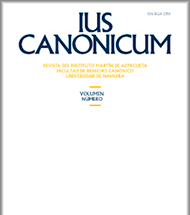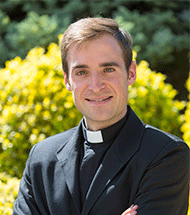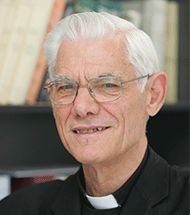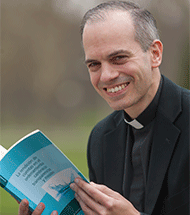An expert studies the evolution and future prospects of Canon Law on the occasion of the centenary of the 1917 Code.
Valentín Gómez-Iglesias has published "De la centralidad de la ley al primado de la persona. Historia y perspectivas canónicas en el centenario del Código de 1917."
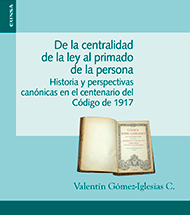
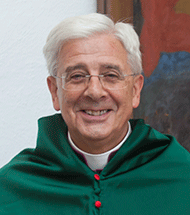
On the occasion of the centenary of the promulgation and entrance in force of the Code of Canon Law of 1917, Valentín Gómez-Iglesias, professor at School of Canon Law of the University of Navarra, has published De la centralidad de la ley al primado de la persona. Historia y perspectivas canónicas en el centenario del Código de 1917. In it he gathers an analysis of the years that have passed with the aim of "serenely understanding what is currently happening in the Law of the People of God, which is the Church, as well as the most accurate possible perspectives for the immediate future".
In the publication, the author identifies the line of progress of Canon Law in the attribution to the person of the primacy in the canonical order, and assures that the certain guarantee of its future lies in "continuing to follow the master path of the person".
According to Professor Gómez-Iglesias, the 1917 Code, although promulgated by Benedict XV, was the initiative and realization of St. Pius X: "It is a milestone in the two-thousand-year juridical history of the Church. With it we passed from a mode of production of law that was predominantly 'jurisprudential' to one that was eminently 'legislative' subject : that is, the authority of the Code no longer derives from its juridical contents as such, but from its promulgation by the Legislator. Thus the central place in Canon Law was assigned to the law, to the legislator. But, from the mid-fifties of the last century, little by little, due to the contribution of balanced and integrating conceptions of scientific doctrine and its expression in the teachings of the ecclesial magisterium, this centrality of the law, without denying its great importance, gradually cedes primacy to the person, to his dignity and freedom, to his fundamental rights and duties".
Aimed at audiences interested in the current affairs of the Church and civil society.The book is addressed to a public specialized in juridical science. However, as the author explains, "because of its sober style and the clarity of the exhibition it will be very useful for people with a training average and above, minimally sensitive to the current affairs of the Church and civil society".
Valentín Gómez-Iglesias Casal (born in Betanzos in 1950 in a family of jurists) is graduate in Law by the University of Compostela (1972). He received his doctorate in Canon Law (1981) and in Law (1985) from the University of Navarra, where he is currently Full Professor of Constitutional Law Canon Law. He has been Vice President of the Pontifical University of the Holy Cross (1988-1995) and, subsequently, for more than a dozen years (1997-2010), he has combined his activity professor and scientific at the Roman University with his activity as President of the high school Roman University of the Holy Cross. He is the author of numerous scientific publications, including the monograph El pathway jurídico del Opus Dei (1989), in partnership with Amadeo de Fuenmayor and José Luis Illanes, of which four editions have been published and translated into several modern languages (English, French, German and Italian).


